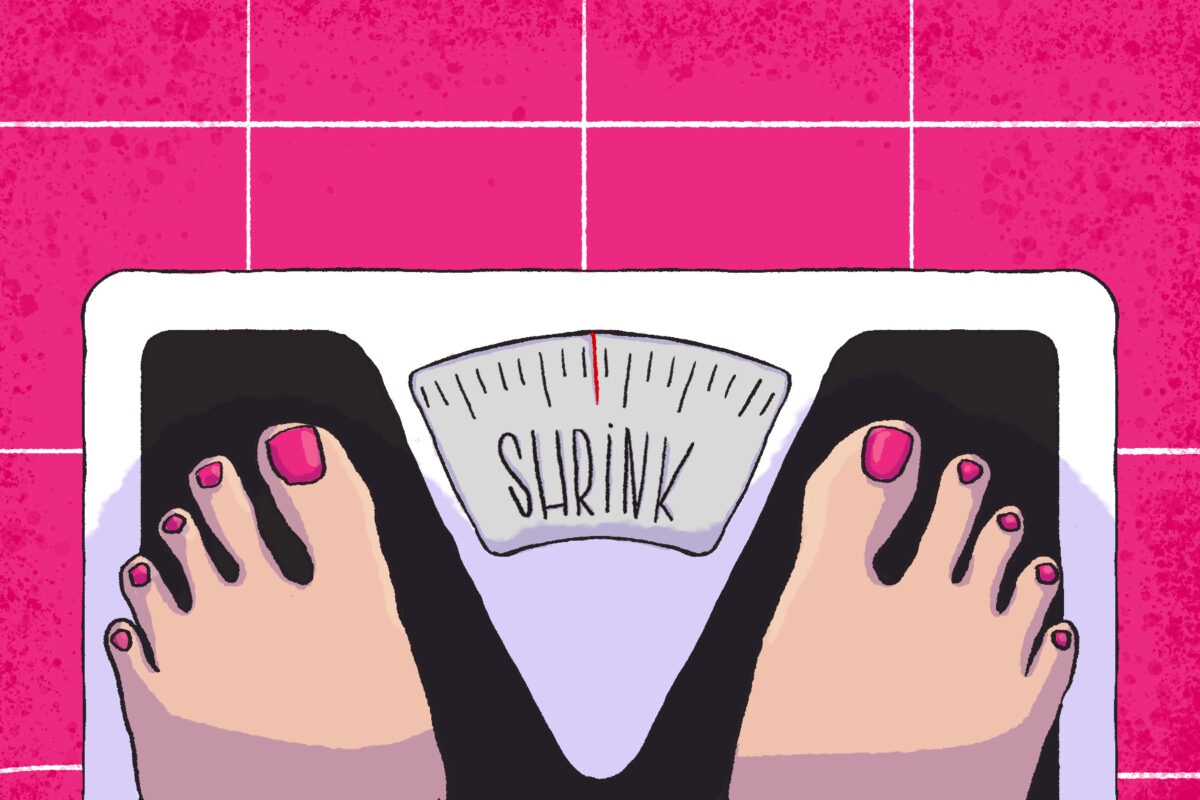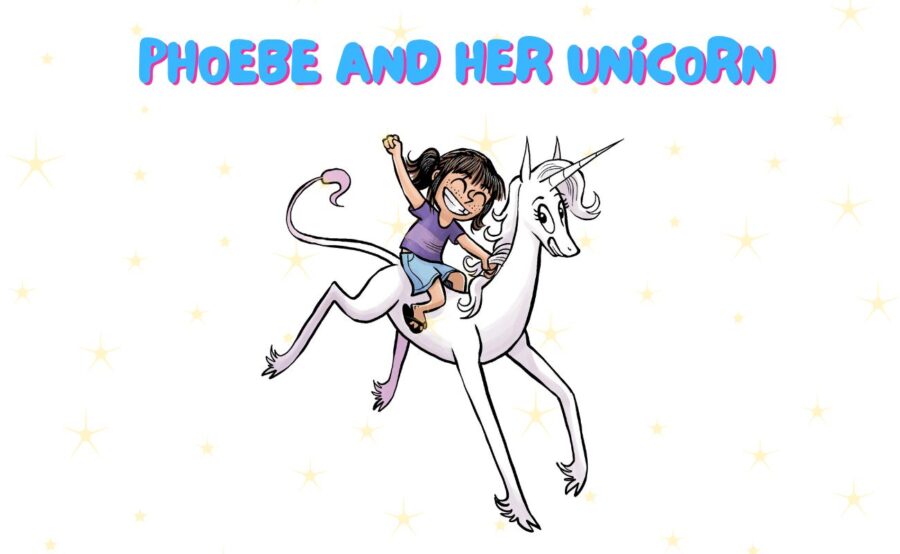When you hear the word fat, what kind of feelings does it evoke?
Good? Bad? Bet it’s something tied to unhealthy living, disease, or lack of willpower.
If you’re a human living in Western culture, chances are you’ve been taught to avoid fatness at all costs. Constant diet propaganda, the association between health and weight, the urgent pressure to be thin, fit into minimal size, show bones, and follow social media trends have created an omnipresence paranoia around weight. So, how does it mean to live in this society when you are fat?
That’s the journey you take in Shrink – Story of a Fat Girl by Rachel M. Thomas.
This book is an autobiographical graphic novel that takes the reader through Thomas’s life as a “fat person,” from childhood and travels with her on her journey of understanding fatphobia as a young woman.
The story opens with Thomas hospitalized, in a bed, with oxygens tubes. Her first thought: “people will think I’m here because I’m fat.”
This scene sets the tone for the entire book. It’s all about how “the other” – it means society and individual – judge a fat body without shame or hesitation to express how disgusted they are.
From the very first page, she shares experience in a plain and direct way. But more than telling her story, Thomas is confronting the reader’s judgment.
She’s asking “Hey, you, reader. What would you think at the first glance, seeing a fat girl in the hospital?” Since it’s a graphic novel, the visual element of “fatness” is there on every page: curves, rolls, body folds. All the illustrations are in black and white, which emphasizes the contrast of shapes.
This reduced palette of colors creates a dark, heavy atmosphere that matches the book’s emotional weight. There’s no sugarcoating. No softness or color, it rests only on the harshness of being seen (and remembered constantly) as something less than human.
Eyes are always watching, and mouths are always ready to comment “what you should do with your fat body” – even total strangers.
The author shows her life experience with painful honestly. She remembers the anger and frustration seeking healthcare, only to receive the same lazy “you should lose weight” diagnosis without further investigation.
She shows the horror of need to take a bus or any public transit and being harassed by strangers, mocked with sounds heard on a farm, asked if she’s tried dieting or people assuming she’s unhealthy based only on weight.
Spoiler alert: being fat isn’t a mandatory disease sentence and being thin does not guarantee good health.
As the reader sees the world through Thomas’s eyes, it becomes clear how damaging this repeated intrusive judgment can be. It slowly wears down the protagonist’s mental health, unraveling her relationship with her body and self-image.
What begins as discomfort turns into rejection and, eventually, pure self-hatred. Being fat is a visible trait.
It can’t be hidden. The judgment is constant, and there is no way to avoid overthinking what people might be thinking.
Thomas achieves an impressive book which makes the audience reflect on their own bias.
The book waves between personal memories, pain and reflection to academic insight, numbers and studies about the topic. Turning pages the reader will be able to gain empathy and increase their knowledge about fat bodies, health, misinformation, and the way fatphobia shapes our daily lives and cultural interaction.
Shrink is a compelling, sensitive and open-heart story about what it means to go from being seen as a non-human to reclaiming your humanity.
Rachel Thomas is an artist, interdisciplinary researcher and Senior Lecturer/Assistant Professor of Comics, Graphic Novels, and Sequential Arts at Teesside University (UK). In 2023, she completed her Ph.D. at Concordia University (Canada), where she developed the graphic novel as part of her doctoral thesis.


